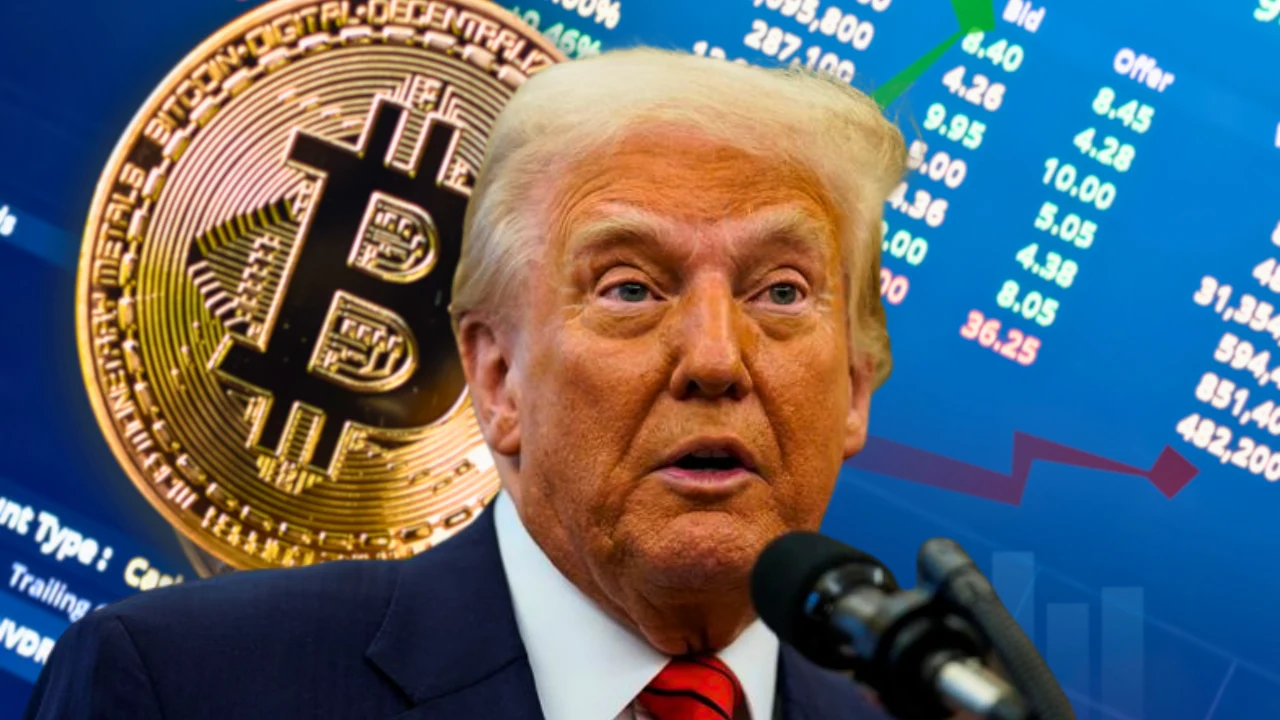President Donald Trump’s official memecoin, $TRUMP, has drawn hundreds of millions in investments from foreign nationals, corporations, and politically motivated buyers, triggering a wave of scrutiny over ethical boundaries, regulatory oversight, and potential conflicts of interest in the White House.
In recent weeks, the Trump family’s cryptocurrency venture has gained traction not just among individual supporters but from global investors seeking access to political influence in Washington. The coin, launched in January days before President Trump’s second inauguration, is now at the center of a growing controversy involving campaign-style dinners, opaque overseas investments, and legislative battles in Congress.
Trump Coin Becomes a New Access Channel
The Trump Organization controls approximately 80% of the $TRUMP coin supply, according to blockchain analytics firms, and has already generated over $300 million in transaction fees. The memecoin’s value spiked following the announcement of exclusive events for top holders — including a private dinner with President Trump at his Virginia golf course.
The April event was open to buyers who ranked on a public leaderboard of $TRUMP holders. A total of $140 million was spent in pursuit of invitations, according to analytics firm Inca Digital. The top 220 buyers were granted dinner access, while the top 25 earned a more exclusive reception.
“This is really unprecedented,” said Jessica Tillipman, an ethics law professor at George Washington University. “This appears to be a president that could be potentially benefiting privately from something that he’s doing out in the open.”
The White House has rejected suggestions that the event violated ethical norms, calling it “a personal dinner that the president is attending on his personal time.” The administration emphasized that no official resources were used and denied any link to a shelved plan offering White House tours to top buyers.
Foreign and Corporate Buyers Enter the Arena
Among the attendees was crypto billionaire Justin Sun, the founder of the Tron blockchain and a prominent Chinese-born investor. Sun is the largest known $TRUMP holder and has previously faced fraud allegations from U.S. regulators. The SEC paused its case against him earlier this year as part of the Trump administration’s rollback of crypto enforcement.
Sun has also disclosed tens of millions in investments into World Liberty Financial, a Trump-backed crypto exchange. Experts note that the anonymous nature of cryptocurrency makes it difficult to track whether foreign nationals are using the token to purchase influence.
“It’s almost like the perfect kind of opaque structure,” Tillipman said. “You don’t know who’s purchasing it. You don’t know who the buyer is.”
More recently, GD Culture Group, a Nasdaq-listed firm tied to TikTok and China, announced plans to invest $300 million in $TRUMP and Bitcoin. The company, which has just eight employees and reported zero revenue last year, said it had secured funding from a stock sale to an undisclosed entity in the British Virgin Islands. The purchase marks the first publicly disclosed Chinese-linked investment in Trump’s coin.
In a recent SEC filing, GD Culture said the transaction would enhance its balance sheet with “high-performance, scalable digital assets,” but did not explain how it secured the funds or why an offshore buyer would finance such a deal. The firm also noted in past filings that the Chinese government could intervene in its operations “at any time.”
Critics Warn of Conflicts and National Security Risks
Ethics groups and lawmakers have raised concerns about the financial structure surrounding the Trump family’s cryptocurrency holdings.
“This is corruption out in the open,” said Sen. Elizabeth Warren, ranking Democrat on the Senate Banking Committee. “The GENIUS Act will supercharge Donald Trump’s ability to collect money from anybody who is seeking pardon, who wants tariff relief, who wants a criminal prosecution dropped.”
The GENIUS Act, which passed a key Senate hurdle on Monday, seeks to regulate stablecoins, a different class of crypto assets. Critics argue that the bill doesn’t go far enough to address conflicts of interest in presidential crypto holdings.
Meanwhile, companies are treating the token as a potential access ticket. California-based Freight Technologies announced a $2 million investment in $TRUMP, openly stating it hoped the purchase would attract the president’s attention after new tariffs damaged its shipping business. “With the Trump meme token, this was just an opportunity to really advocate for free and fair trade,” CFO Donald Quinby told CBS News. “I’m sure he likes to follow who’s purchasing his coins.”
Freight Tech said its investment could reach $20 million.
Trump’s Crypto Footprint Expands
Cryptocurrency now comprises an estimated $2.9 billion of Trump’s personal net worth, according to recent financial disclosures. Alongside his sons, Trump is backing World Liberty Financial and has pledged on social media to make the U.S. the “Crypto Capital of the World.”
While the White House insists that Trump’s assets are held in a blind trust managed by his children, critics say the president’s active promotion of crypto policy — coupled with his family’s personal stake — undermines that claim.
“The difference here is just the order of magnitude and the involvement of the president himself,” said Tillipman, comparing the situation to past ethics questions involving Hunter Biden’s art sales.
As new investors continue to pour money into Trump-aligned digital assets, watchdog groups say the line between governance and private gain is growing harder to distinguish.

